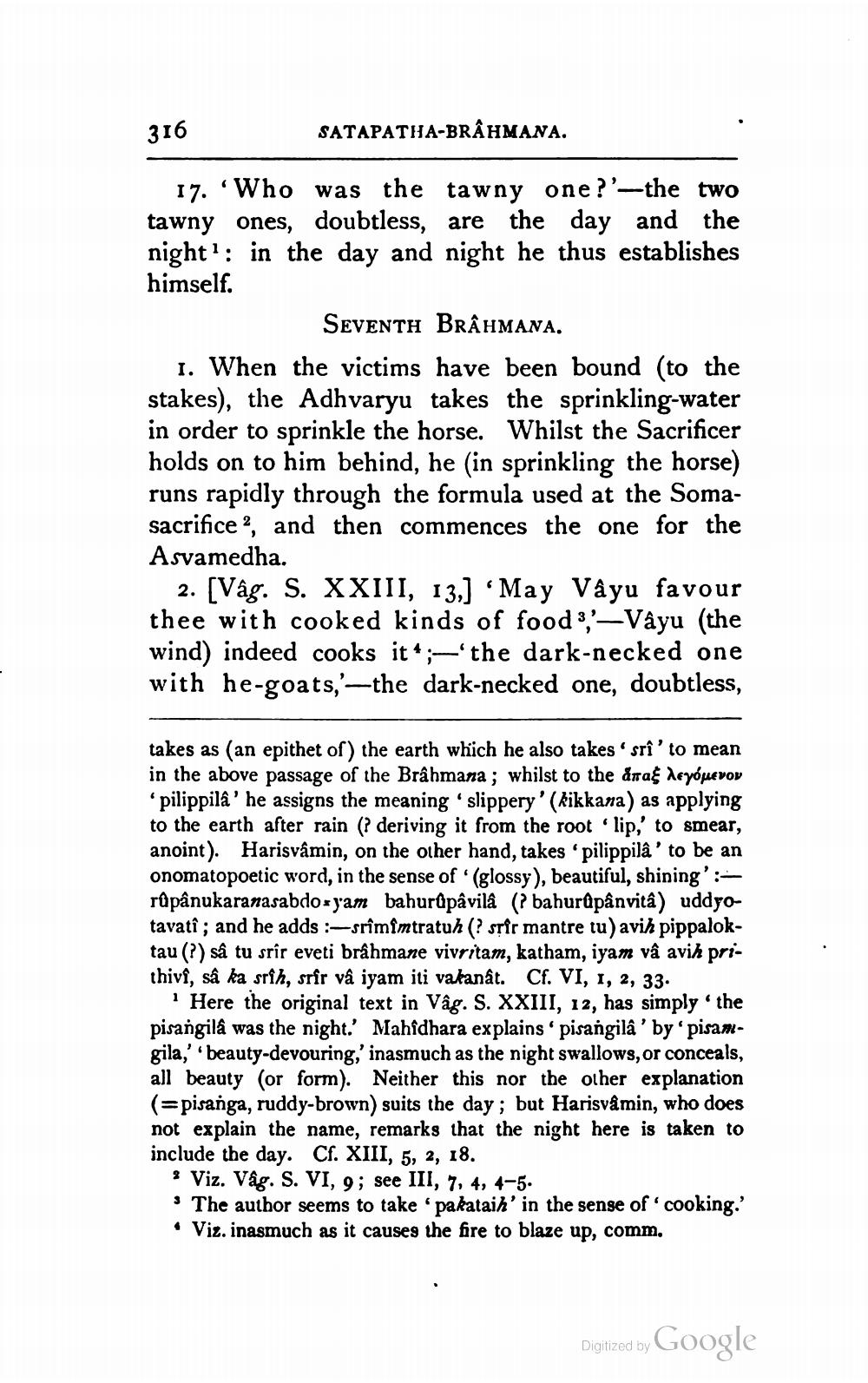________________
316
SATAPATHA-BRAHMANA.
17. Who was the tawny one?'-the two tawny ones, doubtless, are the day and the night': in the day and night he thus establishes himself.
SEVENTH BRAHMANA. 1. When the victims have been bound (to the stakes), the Adhvaryu takes the sprinkling-water in order to sprinkle the horse. Whilst the Sacrificer holds on to him behind, he (in sprinkling the horse) runs rapidly through the formula used at the Somasacrifice ?, and then commences the one for the Asvamedha.
2. [Vág. S. XXIII, 13,] ‘May Vậyu favour thee with cooked kinds of food 3,'—Vayu (the wind) indeed cooks it * ;—'the dark-necked one with he-goats,'--the dark-necked one, doubtless,
takes as (an epithet of) the earth which he also takes 'srî' to mean in the above passage of the Brahmana; whilst to the drag aeyouevov
pilippilâ'he assigns the meaning slippery' (kikkana) as applying to the earth after rain (? deriving it from the root lip,' to smear, anoint). Harisvämin, on the other hand, takes 'pilippilâ ' to be an onomatopoetic word, in the sense of '(glossy), beautiful, shining':rūpânukaranasabdo-yam bahurâpâvilå (? bahurûpânvita) uddyotavatî; and he adds :-srîmîmtratuh(? stir mantre tu) avih pippaloktau (?) så tu srîr eveti brâhmane vivritam, katham, iyam va avih prithivî, så ka srih, stir vâ iyam iti vatanât. Cf. VI, 1, 2, 33.
Here the original text in Vâg. S. XXIII, 12, has simply the pisangilâ was the night.' Mahîdhara explains' pisangilâ' by pisamgila,' beauty-devouring,' inasmuch as the night swallows, or conceals, all beauty (or form). Neither this nor the other explanation (=pisanga, ruddy-brown) suits the day; but Harisvåmin, who does not explain the name, remarks that the night here is taken to include the day. Cf. XIII, 5, 2, 18.
? Viz. Vág. S. VI, 9; see III, 7, 4, 4-5. * The author seems to take 'pakataih' in the sense of 'cooking.' • Viz. inasmuch as it causes the fire to blaze up, comm.
Digitized by Google




